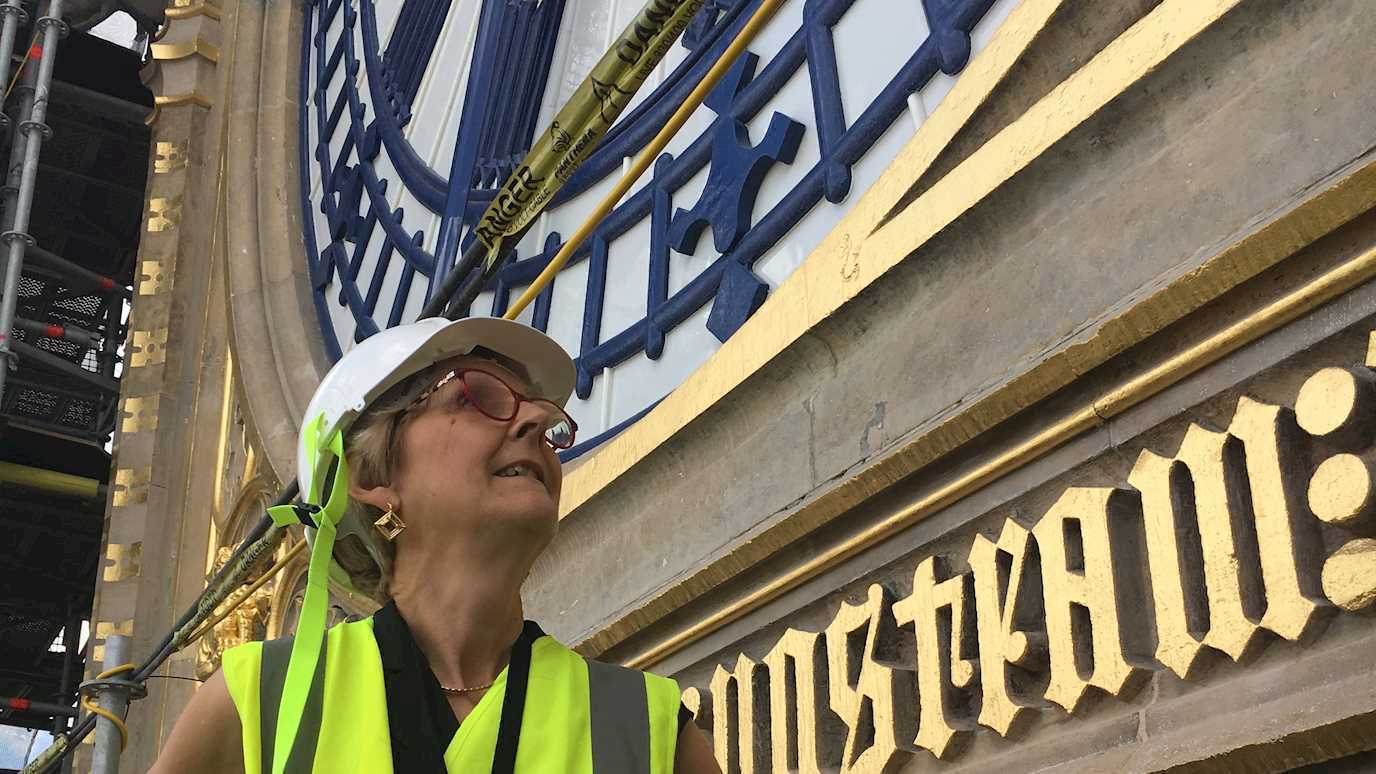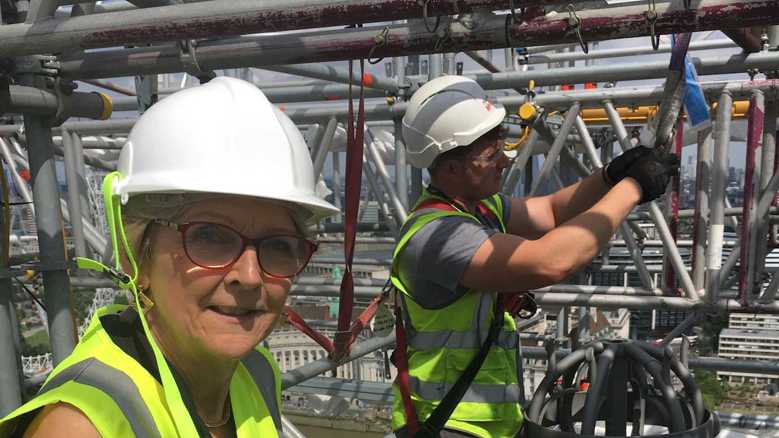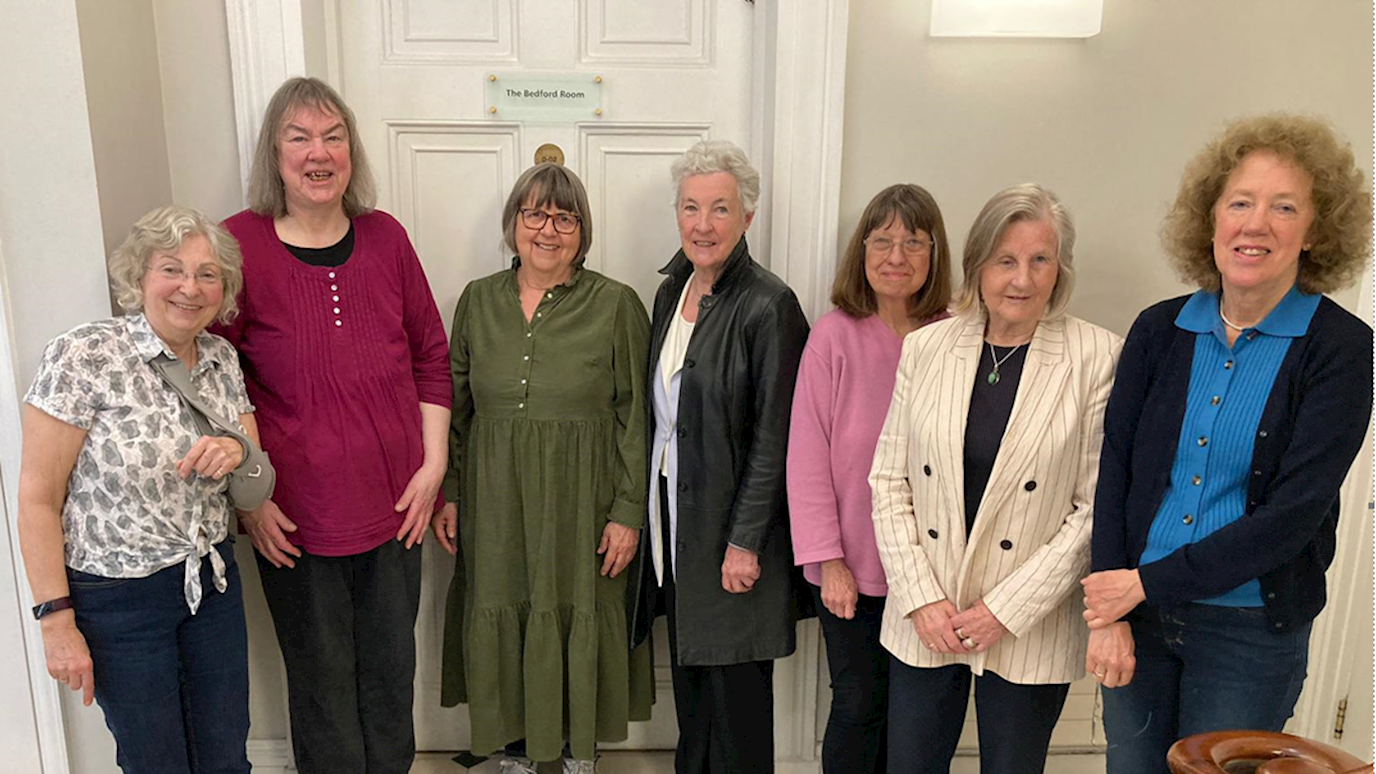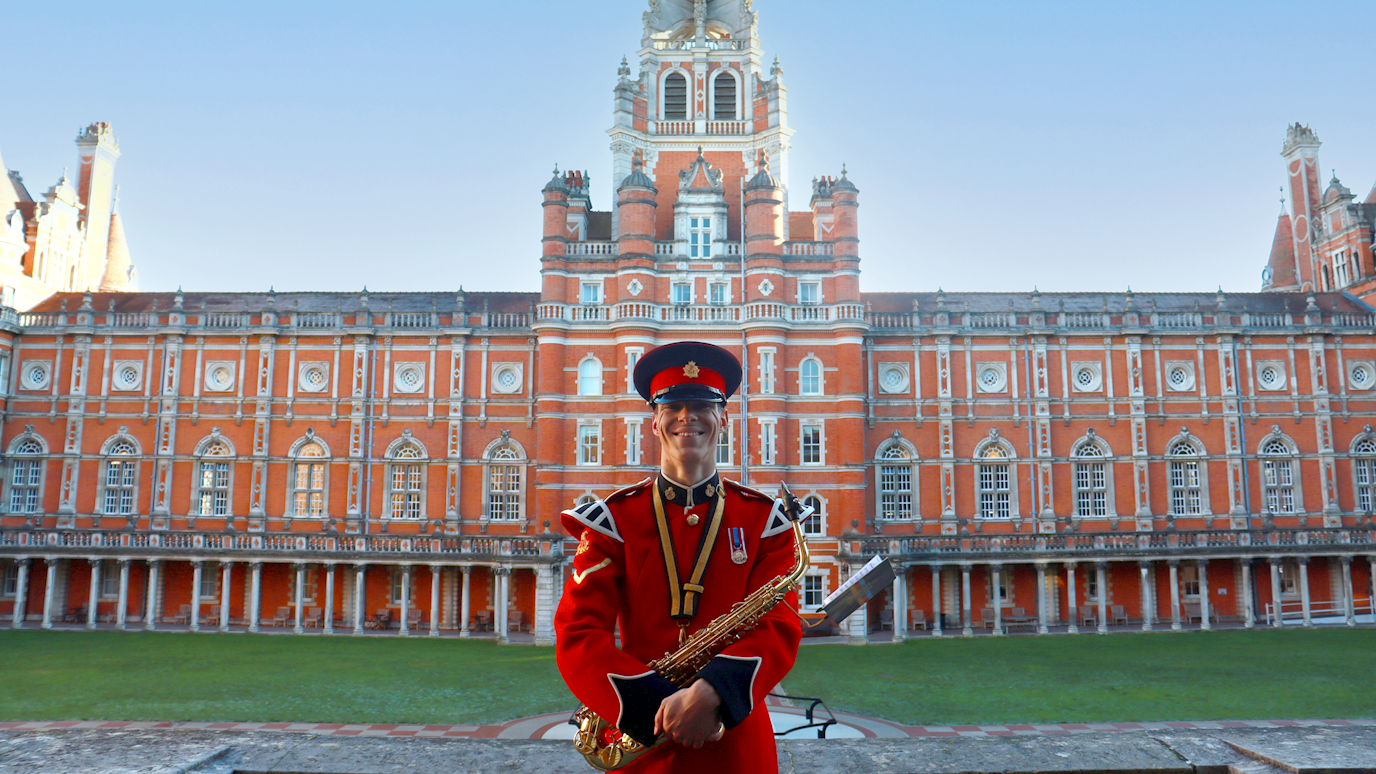The former Chief Executive of the British Property Federation, alumna Liz Peace is one of the most respected faces in the British property industry and a key Whitehall advisor. She talks to alumna and journalist, Jessica Jonzen, about her career, how the buildings we live and work in affect us, and how Royal Holloway set her on her path.

There is a certain irony in the fact that Liz Peace (pictured), the woman who ran the British Property Federation for 14 years and who is a leading voice in the British property industry, began her own career in a dilapidated building.
After graduating from Royal Holloway in History in 1974 having decided not to embark upon a PhD, Liz began her career with the MoD working in the Old War Office. “It was awful!” she laughs. “It had lino on the floor - you only got a carpet if you were a grade seven. If the use of the office changed and the grade seven moved out, they came and ripped up the carpets, leaving marks on the lino where the carpet had been. It was dire. People will not work in that sort of space these days.”
Despite her less than desirable surroundings, Liz was placed on the Fast Stream and by 1979 she had worked her way up to grade seven, and the much-desired carpet. Or she would have done had Margaret Thatcher not been elected Prime Minister and put a temporary block on promotions. “I was jolly irritated about it!” Liz recalls.
Liz’s career went from strength to strength, and took in a variety of roles. The MoD of the 70’s and 80’s was a very male-dominated space but Liz says she never felt that her sex held her back. “I had an absolutely fantastic time and the military are all hilarious fun to work with but there weren’t many women of any seniority in the MoD… there was no sisterhood,” says Liz. “But in an ironic sort of way, I always felt that the MoD was very un-gender conscious, which was good because it meant everybody was treated the same.”
Liz’s first exposure to the property world came with a role with Defence Estates from 1980 - 1983, where she was charged with upgrading RAF Stornoway in the Outer Hebrides as a forward operating base for the Air Force in the event of a war with the Soviet Union. After the Falklands War, Liz and her team also had to provide the facilities for the garrison men at Port Stanley, including building a new airport.
Another proud achievement came from persuading the National Trust to give the Royal Air Force a lease on a piece of their land in High Wycombe for the primary static war headquarters. “The National Trust initially said no and that’s when I got involved.” Liz’s negotiating skills saw her persuade the MoD to spend £3m on a separate access road. The issue was debated in the House of Lords when the National Trust’s membership rebelled but fortunately the National Trust executive won through and agreed to lease the land to them.
Liz spent 27 years at the MoD, and one of her many achievements was spearheading part-time working for women. The last 11 years of her civil service career were spent at the Defence Evaluation and Research Agency, which was established in 1993. Liz rose to the roles of Company Secretary and Director of Corporate Affairs, and helped prepare the agency for privatisation as QinetiQ in 2001. “We had a big celebration and because the scientists on-site did explosives they gave us some fantastic fireworks! Because it had been my project, that was my night.”
Liz left the civil service at the end of 2001 and took up a new role as Chief Executive of the British Property Federation – the voice of the UK real estate industry. Liz ran the federation for 13 years during which time she was made a CBE in the 2008 New Year Honours, before retiring in 2014.

As one of the foremost and most respected names in the property industry, Liz is also one of very few women who have made it to the top of her industry. She is a proud founder member of Real Estate Balance, an organisation working to achieve gender balance in the property industry. “A lot of women are joining the property industry – I think the challenge is hanging on to them,” says Liz. “A lot of women I’ve spoken to just don’t want to play the games you need to play – they have other responsibilities and so decide to go off to do something else.”
What is her advice? “There’s still a laddish culture so my advice to a woman is to not be put off by this and make sure you forge your own way, forge your own network. If you don’t like the culture in your organisation – change it! Get together with other people – it doesn’t have to be just women, there will be a lot of men who will be sympathetic with what you’re trying to do. I think that’s really important by the way – you cannot change the world by just women talking to women.
Over the past six years, Liz has developed a varied portfolio career and has become one of Whitehall’s key advisors on property-related issues. Her roles include chair of the shadow Sponsor Board of the Restoration and Renewal of the Palace of Westminster, and chair of the Old Oak and Park Royal Development Corporation, which is seeking to regenerate a vast area of industrial land in West London around the penultimate stop on the HS2 line heading into London.
Liz chaired the Government Property Unit for four years until December 2019, and spent two years as chair of the Curzon Urban Regeneration Company, overseeing the regeneration around Birmingham’s proposed HS2 station. “I’m very fond of Birmingham, being a Brummie by birth.” She is a trustee at the Churches Conservation Trust, chair of the Architectural Heritage Fund and the Centre for London and President of the Property Litigation Association. She was also, until last year, chair of the property industry's charity, LandAid.
It’s hardly surprising that it was Founder’s Building which first attracted Liz to Royal Holloway. “I opened the brochure and looked at the building and I just thought ‘this is so fabulous.’ It seemed a great place to go. I was quite a nervous provincial girl and the idea of coming and living in central London was quite scary but Royal Holloway was a nice half way house.” Liz read History and was an active member of the student body, joining the Gilbert & Sullivan Society and playing netball for the College. “We invited the Army team over from Aldershot once and we got beaten 100 goals to 8! We decided we weren’t going to play the Army again!”
Liz was also elected on to the planning committee – a taste of what was to come later in her career. “One of the big issues was that a lorry had seriously damaged one of the main gate-posts. We were having an argument with English Heritage about whether to replace it and I remember saying “this is not a place set in aspic – we need to move with the times!”
Did the experience help Liz to find her purpose? “Oh yes, it’s probably what got me into being on committees.”
With hindsight, though, Liz felt there were two particularly formative experiences from her time at Royal Holloway. “I made a lot of good friends and had a wonderful education from some first rate academics, particularly the lovely Roger Lockyer (a 16th and 17th century specialist); and then during my summer vacations, I went and worked in a factory.” Liz, who was brought up in Bournville, would work in the Cadbury’s factory on the belt packing chocolates. “It was better paid than working in the offices and it was a tremendous experience - it was real life, with real people. I think that those two very different experiences together meant that I came out as a reasonably well-rounded person and by then I wasn’t afraid of living in London and working for the MoD. It was a wonderful three years.”
Do you have an inspirational career story to tell? Share it with us.
























